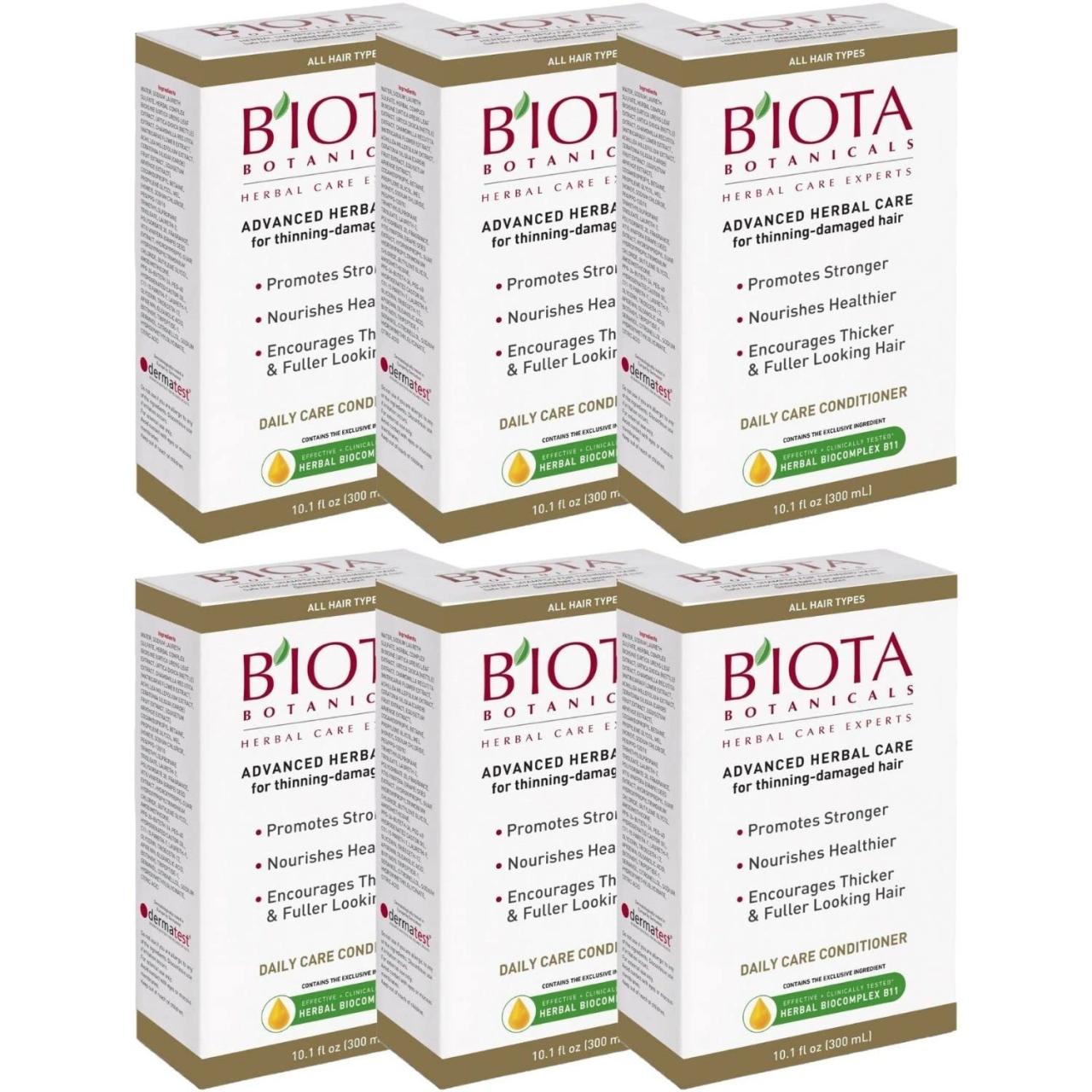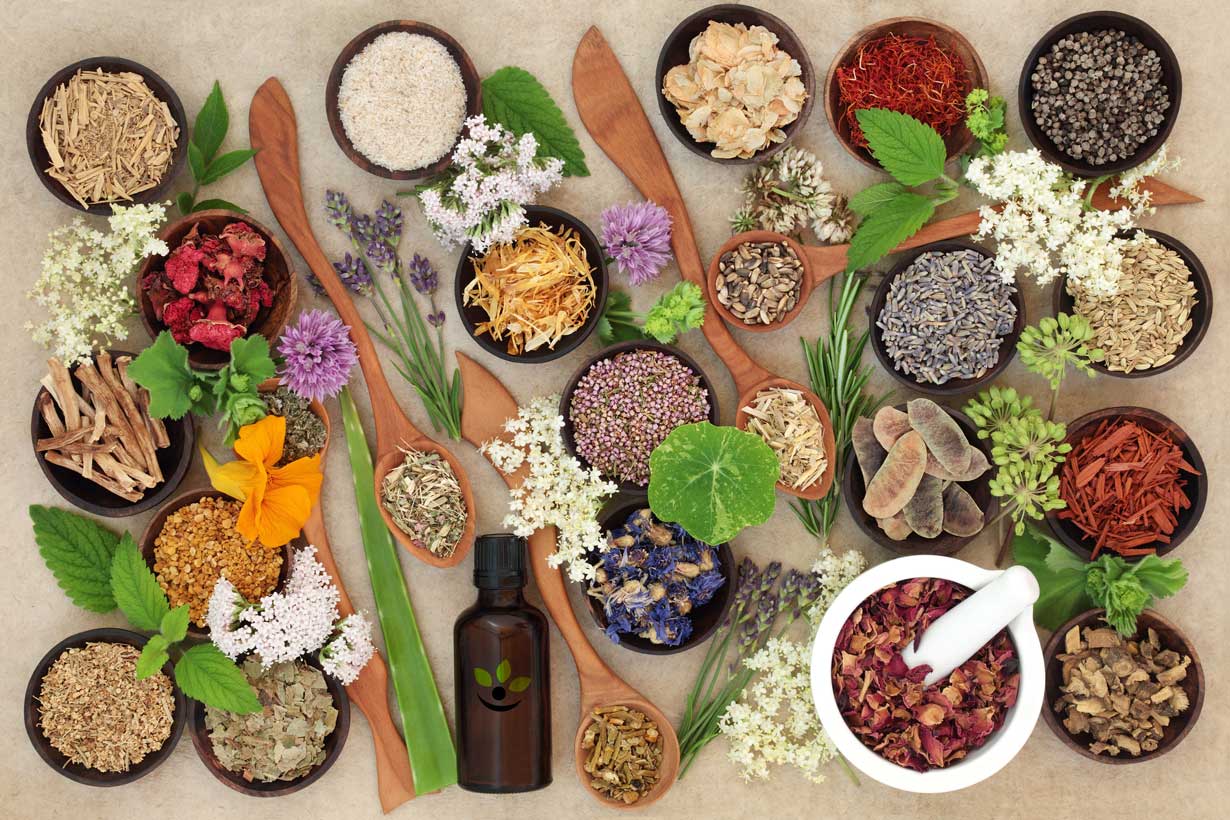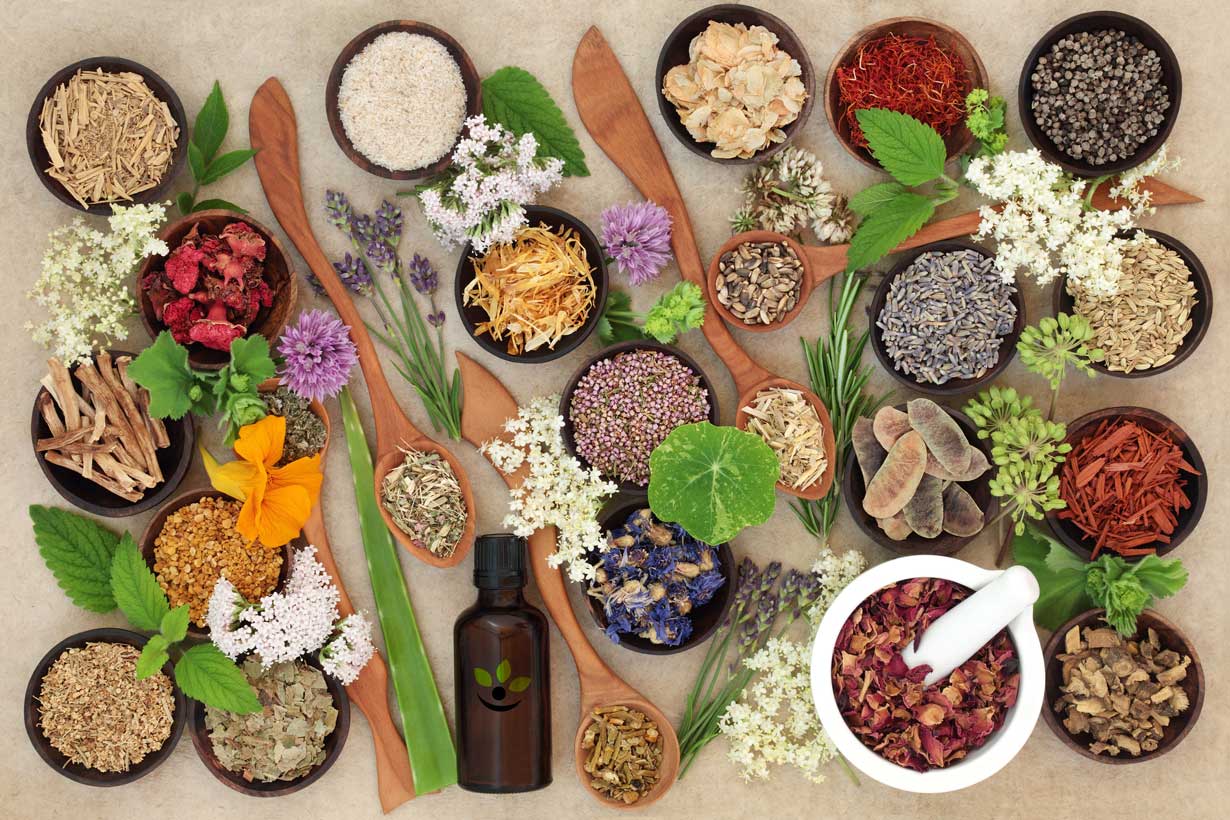How to Use Biota Herb for Total Wellness and Healing is a comprehensive guide exploring the potential benefits and applications of this ancient herb. Biota Herb, also known as Thuja occidentalis, has been used for centuries in traditional medicine for its diverse therapeutic properties.
This article delves into the historical uses, active compounds, and potential benefits of Biota Herb for physical and mental well-being. We’ll explore its applications in respiratory, digestive, and skin health, as well as its ability to promote relaxation, improve sleep quality, and enhance cognitive function.
We’ll also discuss safe and effective ways to use Biota Herb, including teas, tinctures, capsules, and topical applications, along with important precautions and potential side effects.
This guide provides insights into how Biota Herb is integrated into modern wellness practices, including aromatherapy, herbal medicine, and natural remedies. We’ll explore ongoing research and clinical trials investigating the potential benefits of this versatile herb. By understanding the various applications and benefits of Biota Herb, individuals can make informed decisions about incorporating it into their wellness routines.
Introduction to Biota Herb

Biota herb, scientifically known asPlatycladus orientalis*, is a coniferous evergreen tree native to East Asia, particularly China, Korea, and Japan. This versatile plant has a rich history of medicinal and cultural uses, spanning centuries across various civilizations.
While exploring the realm of natural healing with biota herb, consider branching out to another area of growth – your home garden! If you’re seeking a unique and rewarding way to cultivate beauty, Discover How to Propagate African Violets Without Soil!.
This method is not only fascinating but also a great way to share your passion for plants with others. Just as biota herb can contribute to your overall well-being, nurturing these vibrant flowers can bring a sense of tranquility and joy to your space.
Historical and Traditional Uses of Biota Herb
Biota herb has been utilized in traditional medicine systems for centuries, particularly in Chinese medicine, where it is known as “bai zhu” or “thuja orientalis.” Its therapeutic properties have been recognized for their potential to address a range of health concerns.
- Traditional Chinese Medicine:Biota herb has been a cornerstone of traditional Chinese medicine (TCM) for centuries. Practitioners use it to treat various ailments, including respiratory issues, coughs, and skin conditions. The herb’s ability to clear heat and detoxify the body is highly valued in TCM.
- Korean Traditional Medicine:In Korean traditional medicine, Biota herb is known as “gug-ja” and is similarly employed to address respiratory ailments, particularly coughs and asthma. Its anti-inflammatory and expectorant properties are believed to be beneficial for these conditions.
- Japanese Traditional Medicine:Biota herb, known as “hiba” in Japan, is used in traditional Japanese medicine to treat skin infections, wounds, and burns. Its antiseptic and wound-healing properties are highly regarded in this context.
Active Compounds and Potential Benefits of Biota Herb
Biota herb contains a variety of bioactive compounds that contribute to its potential health benefits. These compounds include:
- Essential Oils:Biota herb is rich in essential oils, including thujone, pinene, and limonene. These oils contribute to the herb’s antimicrobial, anti-inflammatory, and analgesic properties.
- Flavonoids:Biota herb contains flavonoids, such as quercetin and kaempferol, which are known for their antioxidant and anti-inflammatory effects.
- Tannins:Biota herb contains tannins, which are astringent compounds that can help to reduce inflammation and promote wound healing.
Research suggests that Biota herb may offer a range of potential health benefits, including:
- Antioxidant Activity:The flavonoids and other bioactive compounds in Biota herb possess antioxidant properties, which can help protect cells from damage caused by free radicals.
- Anti-Inflammatory Properties:Biota herb has been shown to exhibit anti-inflammatory effects, which may be beneficial for conditions such as arthritis and asthma.
- Antimicrobial Activity:The essential oils in Biota herb have antimicrobial properties, which can help to fight infections caused by bacteria, fungi, and viruses.
- Respiratory Health:Biota herb is traditionally used to address respiratory issues, such as coughs, asthma, and bronchitis. Its expectorant and anti-inflammatory properties may be beneficial for these conditions.
- Skin Health:Biota herb is known for its antiseptic and wound-healing properties, making it useful for treating skin infections, wounds, and burns.
Biota Herb for Physical Wellness: How To Use Biota Herb For Total Wellness And Healing
Biota herb, also known as thuja, has been traditionally used in various cultures for its potential health benefits. It has been recognized for its potential to support physical well-being, particularly in areas such as respiratory, digestive, and skin health.
Respiratory Health
Biota herb has been traditionally used to address respiratory issues, including coughs, asthma, and bronchitis. The herb contains compounds that may help to reduce inflammation in the airways and loosen mucus, making it easier to cough up.
- Cough:Biota herb is believed to have expectorant properties, which can help to thin mucus and make it easier to cough up. This can be particularly beneficial for coughs associated with colds, bronchitis, and other respiratory conditions.
- Asthma:Some studies suggest that biota herb may have anti-inflammatory properties that could help to reduce airway inflammation associated with asthma. It’s important to note that biota herb should not be used as a substitute for prescribed asthma medications.
- Bronchitis:Biota herb’s expectorant properties can help to clear mucus from the airways, which may be beneficial in treating bronchitis.
Digestive Health
Biota herb has been used to support digestive health by alleviating bloating, gas, and indigestion. Its potential benefits for digestive health are linked to its ability to promote digestive function and reduce inflammation in the digestive tract.
- Bloating and Gas:Biota herb may help to reduce bloating and gas by easing digestive discomfort and promoting the passage of gas.
- Indigestion:Biota herb’s anti-inflammatory properties may help to reduce inflammation in the digestive tract, which can contribute to indigestion.
Skin Health
Biota herb has been traditionally used for its potential to improve skin health, particularly in cases of acne, eczema, and psoriasis. The herb’s antimicrobial and anti-inflammatory properties may help to reduce inflammation and fight bacteria that contribute to skin conditions.
- Acne:Biota herb’s antimicrobial properties may help to combat bacteria that contribute to acne breakouts.
- Eczema:Biota herb’s anti-inflammatory properties may help to reduce inflammation associated with eczema, which can lead to itching and redness.
- Psoriasis:Biota herb’s anti-inflammatory properties may help to reduce inflammation associated with psoriasis, which can lead to scaly patches and itching.
Biota Herb for Mental Wellness

Biota herb, also known as thuja, has been traditionally used in various cultures for its potential mental health benefits. Its calming and relaxing properties have been attributed to its chemical constituents, particularly the volatile oils.
Stress and Anxiety Relief
Biota herb has been traditionally used as a natural remedy for stress and anxiety. Research suggests that its calming effects may be attributed to its ability to modulate neurotransmitters in the brain, such as GABA, which plays a role in reducing anxiety.
Studies have shown that biota herb extract can reduce stress-induced hormonal changes and improve mood in individuals experiencing anxiety. For instance, a study published in the Journal of Ethnopharmacology found that biota herb extract significantly reduced anxiety-like behavior in mice.
Improving Sleep Quality
Biota herb may help improve sleep quality by promoting relaxation and reducing anxiety. Its sedative effects may be attributed to its ability to increase GABA levels in the brain, which can promote sleepiness. Some individuals report experiencing improved sleep quality after consuming biota herb tea or supplements.
It’s important to note that the use of biota herb for sleep issues should be discussed with a healthcare professional, as it may interact with certain medications.
While biota herb holds a place in traditional medicine, its benefits are often overshadowed by the more widely known herbs. But its potential for overall well-being shouldn’t be overlooked. Just like the simple yet effective method of leaf propagation for African Violets, African Violets: Leaf Propagation for Thriving Houseplants , biota herb can be a valuable tool for promoting health and vitality.
With a little research and experimentation, you can unlock the potential of this herb for your own journey to total wellness.
Cognitive Function and Memory
Biota herb may offer potential benefits for cognitive function and memory. Studies suggest that its antioxidant properties may help protect brain cells from damage caused by oxidative stress, which can contribute to cognitive decline. Some preliminary research indicates that biota herb may improve memory and learning in animal models.
However, more research is needed to confirm these findings in humans.
Using Biota Herb Safely and Effectively
Biota herb, also known as thuja, has been used for centuries in traditional medicine for various health benefits. While it offers potential therapeutic properties, it is crucial to use it safely and effectively to avoid any adverse effects. Understanding the different ways to use biota herb and the precautions associated with its use is essential for maximizing its benefits and minimizing risks.
Different Ways to Use Biota Herb
Biota herb is available in various forms, each with its unique advantages and applications. Here are some common ways to use it:
Form |
Description |
Benefits |
Precautions |
|---|---|---|---|
Teas |
Dried biota leaves are steeped in hot water to create a tea. |
May help relieve respiratory issues, such as coughs and colds. |
Avoid excessive consumption as it can cause gastrointestinal upset. |
Tinctures |
Biota herb is extracted in alcohol to create a concentrated liquid. |
Offers a convenient and potent way to ingest biota herb. |
Use as directed, as high concentrations can be harmful. |
Capsules |
Dried biota herb is encapsulated for easy consumption. |
Provides a consistent dosage and convenient administration. |
Follow recommended dosage instructions. |
Topical Applications |
Biota herb oil or ointment can be applied directly to the skin. |
May help soothe skin irritations, such as eczema and psoriasis. |
Perform a patch test before applying to larger areas of skin. |
Precautions and Potential Side Effects, How to Use Biota Herb for Total Wellness and Healing
While biota herb is generally considered safe when used appropriately, it is important to be aware of potential side effects and precautions. Some common side effects include:
- Gastrointestinal upset, such as nausea, vomiting, and diarrhea
- Allergic reactions, including skin rashes and itching
- Headaches and dizziness
Consulting a Healthcare Professional
It is crucial to consult a healthcare professional before using biota herb, especially if you are:
- Pregnant or breastfeeding
- Taking any medications
- Have any underlying health conditions
Your healthcare provider can advise you on the appropriate dosage, potential interactions with other medications, and any potential risks based on your individual health needs.
Biota Herb in Modern Wellness Practices

Biota herb, with its long history of use in traditional medicine, is experiencing a resurgence in popularity as modern wellness practices increasingly embrace natural and holistic approaches. Its adaptability and versatility make it a valuable component in a variety of contemporary wellness methods, including aromatherapy, herbal medicine, and natural remedies.
Integration into Modern Wellness Practices
Biota herb’s integration into modern wellness practices is driven by its potential health benefits and its ability to complement existing therapies.
Aromatherapy
Aromatherapy harnesses the therapeutic properties of essential oils extracted from plants. Biota herb essential oil, known for its calming and grounding effects, is often incorporated into aromatherapy blends for stress relief, anxiety reduction, and improved sleep quality.
Herbal Medicine
Herbal medicine utilizes plants and their extracts for therapeutic purposes. Biota herb is commonly used in herbal preparations for its potential to support respiratory health, boost the immune system, and alleviate digestive issues.
Natural Remedies
Biota herb is also finding its place in natural remedies for various ailments. Its anti-inflammatory and analgesic properties make it a potential remedy for pain management, while its antioxidant properties are explored for their potential to protect against cell damage.
Examples of Biota Herb in Wellness Products and Treatments
Biota herb’s versatility allows it to be incorporated into a range of wellness products and treatments:
- Essential Oils:Biota herb essential oil is widely available and used in diffusers, massage oils, and aromatherapy blends.
- Herbal Teas:Biota herb leaves are commonly used to create soothing and calming teas.
- Supplements:Biota herb extracts are often found in capsules and tablets, offering a convenient way to consume its potential benefits.
- Topical Products:Biota herb extracts are incorporated into creams, lotions, and balms for topical application, often for pain relief and skin health.
Ongoing Research and Clinical Trials
The growing interest in Biota herb’s potential health benefits has spurred ongoing research and clinical trials to investigate its efficacy and safety.
- Anti-Inflammatory Effects:Studies are exploring Biota herb’s potential to reduce inflammation associated with various conditions, including arthritis and respiratory illnesses.
- Antioxidant Properties:Research is examining Biota herb’s ability to combat oxidative stress and protect against cell damage, potentially contributing to disease prevention.
- Cognitive Function:Some studies suggest that Biota herb may have cognitive-enhancing effects, potentially improving memory and focus.
- Sleep Quality:Research is investigating Biota herb’s potential to promote relaxation and improve sleep quality, particularly in individuals experiencing stress and anxiety.
Final Wrap-Up
Biota Herb, with its rich history and diverse applications, offers a promising path toward total wellness and healing. From supporting respiratory and digestive health to promoting relaxation and cognitive function, this herb presents a natural approach to holistic well-being. While it’s crucial to consult a healthcare professional before incorporating Biota Herb into your regimen, particularly if you have underlying health conditions or are pregnant or breastfeeding, its potential benefits for physical and mental health are undeniable.
As research continues to unravel the multifaceted properties of Biota Herb, its role in modern wellness practices is poised to expand, offering individuals a natural and holistic approach to achieving optimal health and vitality.
Essential Questionnaire
What are the main active compounds in Biota Herb?
Biota Herb contains various active compounds, including essential oils like thujone, tannins, flavonoids, and volatile oils, which contribute to its therapeutic properties.
Is Biota Herb safe for everyone?
While Biota Herb is generally considered safe when used appropriately, it’s essential to consult a healthcare professional before using it, especially if you have underlying health conditions, are pregnant, or breastfeeding.
How long does it take to experience the benefits of Biota Herb?
The time it takes to experience the benefits of Biota Herb can vary depending on the individual, the specific condition being addressed, and the chosen method of use. Some people may notice improvements within a few days or weeks, while others may require longer-term use.
